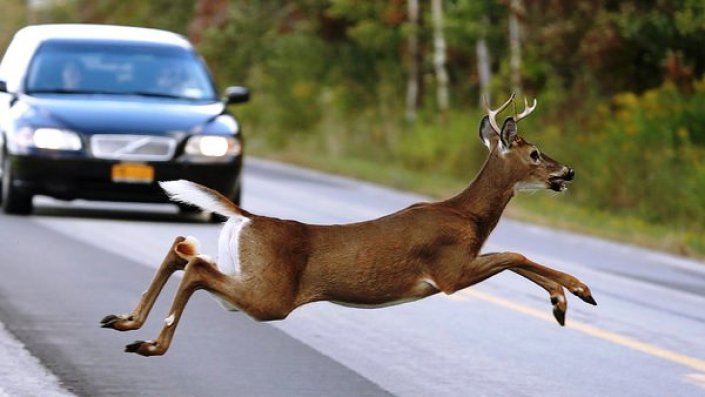October through December is high deer season, during which there is a “dramatic increase in the movement of the deer population,” according to an Oct. 1, 2007 press release from the Insurance Information Institute (III).
Deer and cars have never been a good combo, and in recent years Bambi and her ilk have presented an increasing danger to drivers, mainly due to habitat encroachment (ours spilling into theirs).
Each year deer/car collisions cause thousand of injuries—and hundreds of deaths, according to a Sept 25, 2006 press release from the III. Additionally, the average cost per accident, when you factor in bodily injury and vehicle damage, totals over $10,000.
According to a 2005 study done by State Farm, these states have the highest number of deer-car collisions:
- Pennsylvania
- Michigan
- Illinois
- Ohio
- Georgia
- Minnesota
- Virginia
- Indiana
- Texas
- Wisconsin
The good news is that wherever you live, vigilant driving works. (The bad news is that that deer whistle you just mounted to the Buick’s bumper doesn’t work.)
After a vigorous public awareness campaign, Pennsylvania-based Erie Insurance saw a 6 percent reduction in deer-related auto claims in 2005, according to a Oct. 9, 2006, article in the Insurance Journal. The takeaway? Regular reminders of the hazards will keep collisions down.
Here’s what you can do to minimize the risk of hitting a deer:
- Be attentive at night and the early morning
- Use your high beams when appropriate
- Wear your seat belt
- Avoid distractions like phones, food and radios
- Drive sober
- Brake firmly but do not jerk the wheel when you see a deer
Additionally, you city slickers take note: deer aren’t just in the sticks and the ‘burbs—they’re common in urban areas too.
If you do hit a deer, the Insurance Information Institute recommends the following steps:
- Do not touch the deer. (“A frightened and wounded deer can hurt you or further injure itself.”)
- Get your car off the road, if possible.
- Call the police.
- Call your insurance agent or company representative to report any damage to your car.
Lastly, note that collision with an animal is covered under the comprehensive—not collision, oddly enough—portion of your auto insurance policy.
